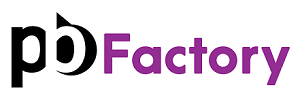Looking for a job with a recruitment company like research recruitment agencies for example without preparing any strategy can lead to high frustration levels. Therefore, what to do when so many applications are made and so few responses? It is tempting to blame the “system,” the way recruitment and selection processes are conducted in companies, the “C factor” – the so-called wedge – but looking at the factors we can effectively control would be more effective. The truth is that among the key factors for a successful job search are elements that depend more on us than we may often think. Find out what they are.
Be Efficient In Your Job Search
Let’s be pragmatic: one of the issues worth looking into is the proportion between the time we spend looking for a job and the results obtained. If you’ve been spending weeks, even months, sending spontaneous applications and haven’t been going to any job interviews, it’s time to do a deep analysis of the type of message you’re sending to companies and adopt a more effective strategy.
Have you selected opportunities that fit your profile, or are you “shooting everywhere”?
If your case is the latter, stop now. Wasting time investing in job opportunities that are not what you want can keep you away from those that matter and that can bring you the professional fulfillment you want.
Quality VS Quantity
You should invest more in quality than quantity when looking for a job. Looking for a job is not like playing the lottery. Especially because the probability of getting the right job for you is much greater than the probability of winning big in the game, but you must know what that job is. Do not know? Maybe that’s why you can’t find it.
Self-knowledge
When not even the candidate knows themself well, how do you expect to make yourself known to companies? How do you want people to bet on you and believe you are the right candidate for that vacancy if you don’t know which job you want to find?
Before sending any resume, stop and analyze yourself:
- What are your professional skills?
- What do you like to do?
- In what kind of professional environment do you feel accomplished?
- Where is your network of contacts?
- Can you activate these contacts and tell them you are seeking new opportunities?
Only after answering all these questions can you think about redesigning your professional CV – the one that will be the first reason for calling you for a job interview.







